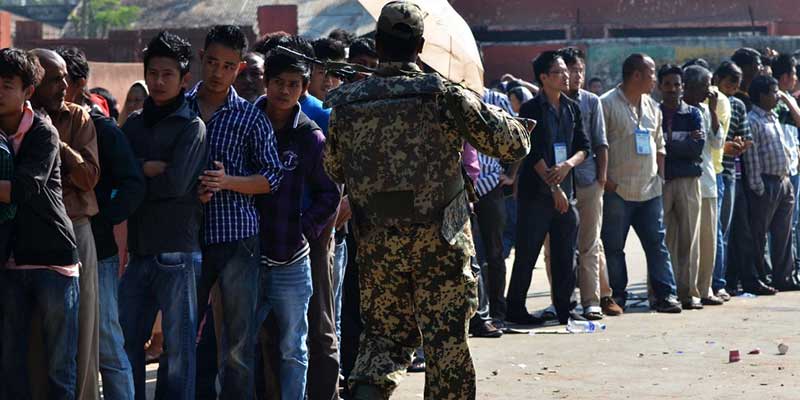- India
- Jul 01
MHA extends AFSPA in Nagaland
The Centre declared the entire Nagaland as a “disturbed area” for a further period of six months till December-end.
In a notification, the ministry of home affairs said the central government is of the opinion that the area comprising the whole Nagaland is in such a disturbed and dangerous condition that the use of armed forces in aid of the civil power is necessary.
“Now, therefore, in exercise of the powers conferred by Section 3 of the Armed Forces (Special Powers) Act, 1958, the central government hereby declares that whole of the said state to be a ‘disturbed area’ for a period of six months with effect from 30th June, 2020 for the purpose of that Act,” the home ministry said.
Nagaland has been under the coverage of the Armed Forces (Special Powers) Act (AFSPA) for almost six decades and it was not withdrawn even after a framework agreement was signed on August 3, 2015, by Naga insurgent group National Socialist Council of Nagaland (Isak Muivah) General Secretary Thuingaleng Muivah and government interlocutor R.N. Ravi in the presence of PM Narendra Modi.
What is AFSPA?
Law and order is a state subject. However, the central government is supplementing efforts of the state governments for curbing the illegal and unlawful activities of militant/insurgent groups of Northeast states through various measures.
These include deployment of Central Armed Police Forces, reimbursement of security related expenditure to the state governments under SRE scheme, central assistance to the state governments for modernisation of state police forces, sanction of India Reserve Battalions, banning the Unlawful Associations operating in NE region under UAPA, declaring specific areas/ states as ‘disturbed areas’ for the purpose of AFSPA and issuing notifications for Unified Command Structure.
The Armed Forces (Special Powers) Act was enacted in 1958 to enable certain special powers to be conferred upon the members of the armed forces in the disturbed areas in Assam and Manipur. It was amended and extended to Arunachal Pradesh, Meghalaya, Mizoram, Nagaland and Tripura.
The AFSPA gives the armed forces sweeping powers to search and arrest, and to open fire if they deem it necessary for “the maintenance of public order”.
AFSPA is imposed in areas where armed forces are required to operate in aid of civil authorities. For AFSPA to become valid, an area, however, needs to be declared disturbed either by the Central or the state government under Section 3 of the 1958 Act.
Currently, AFSPA continues to be in force in Assam, Manipur, Nagaland and parts of Arunachal Pradesh.
Manorama Yearbook app is now available on Google Play Store and iOS App Store

